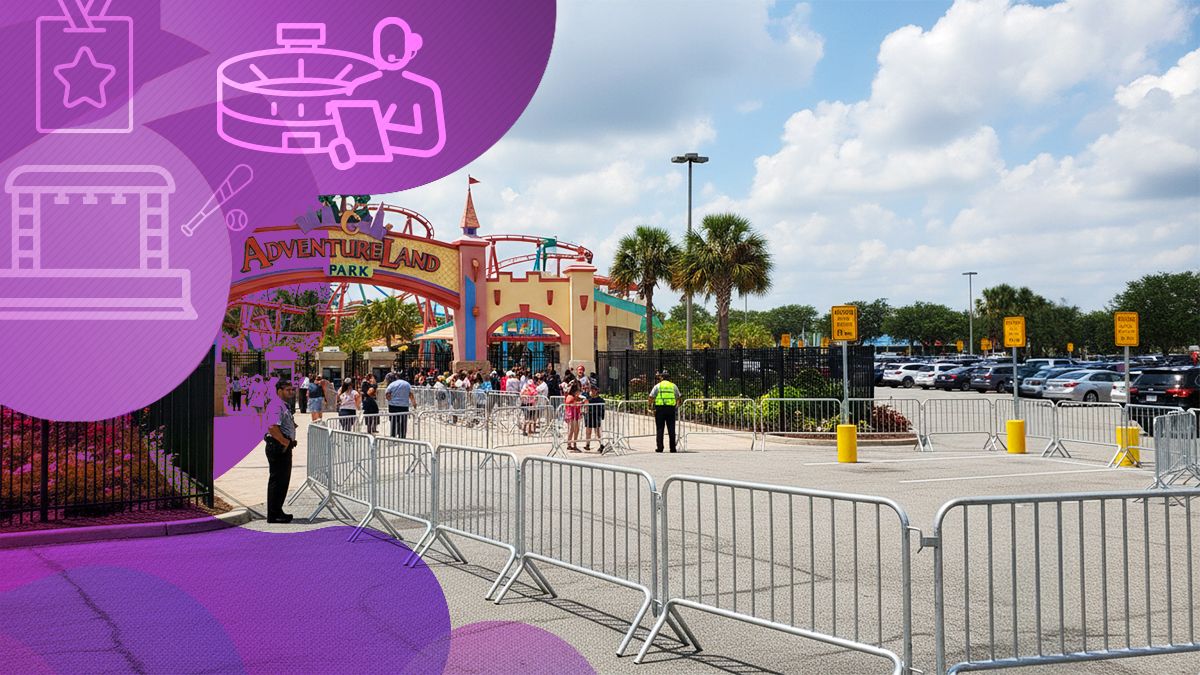Lead Qualification and Engagement for Rental Businesses
Master lead qualification to turn prospects into loyal customers and grow your fence rental business.

Running a rental business means balancing customer requests and available inventory. Having a system to find customers without losing time is key to growing your revenue.
The more customers that find your fence business, the better. Lead management is the art of knowing who your customers are, identifying prospects, acquiring customers, and nurturing those leads. This process can be a struggle for many business owners who are new to the fence industry.
Lead Management 101
Lead management is the process of identifying customers and guiding them through the sales funnel. You can tell a person is a lead if they call your business to inquire about services, visit your website and fill out a form, or respond to your marketing emails.
Statistics tell us that over 90% of people who visit websites aren't ready to buy yet, which means that it takes a strong lead management system to keep your company top of mind through their buying decision.
What Is a Prospect?
A prospect is a qualified lead. When we talk about "qualified" leads, we mean leads that have been evaluated and are believed to fit your customer profile. Qualified leads have a high potential to turn into real customers.
Basic Lead Management Steps
Without a proper lead management system, your business may miss out on opportunities to provide your services to customers. Below are some of the basic steps your business may follow as a part of its lead management system.
Know Your Customer Profile
A customer profile is a description of your ideal customers. Each customer type should have their own profile. You can use this profile to determine what your customers want and how you can meet their needs.
Most fence rental companies have at least two customer profiles and may have more. Below are some examples of customer profiles you may create for your customers.
Construction Company
Construction companies need temporary fencing to protect jobsites and comply with regulations that protect passersby as well as workers. Buyers for construction companies include project managers, safety managers, and supervisors. Here's what to know about these customers:
- Need to have law-compliant Temp Fences on site before their project starts.
- Focused on jobsite security and the safety of workers as well as passersby.
- Need long-term rentals of six months or more.
- Will pay for fences from trusted providers to help them avoid operational delays.


Event Companies
Event companies need temporary fencing to keep special events contained and to direct foot traffic. Buyers for special event companies include event producers and event management teams. Here's what to know about these customers:
- Focused on ensuring area security and attendee safety.
- Need short-term rentals of several days or weeks.
- Need fence rental companies that provide efficient, reliable set-up and removal service.
Take Steps to Acquire New Customers
After determining who your customers are, you can then take steps to find customers, wherever they are. There are many customer acquisition strategies
Below are some examples of the best ways to find customers.
- Attend industry events. Look up trade shows, fairs, and other events where your customers are likely to have a presence or a table. This may include conferences and other events. Bring business cards, price lists, and swag to entice customers. You may even give attendees an exclusive discount code which they can use to arrange their first rental.
- Market online. Online marketing and social media can get your name out to potential customers. Start social media pages of all types to capture as many customers as possible.
- Encourage referrals. Word-of-mouth is powerful for generating new customers, and can reliably bring customers to many businesses. Offer a discount for customer referrals.
- Join SONCO’S Lead Sharing Program. SONCO NEXUS is a specialized program that connects you with customers actively looking for rentals—helping you get more business without extra marketing effort.
SONCO was a Temp Fence Rental company for over 20 years, and to this day, we receive requests from customers looking to rent our products. Currently, we no longer offer rental services, but we gladly refer our customers in need of Temp Fence Rentals, helping new businesses get off the ground. And best of all: the program is FREE to join!
Qualify Your Leads
Customers must be vetted in order to be considered qualified. Create a list of criteria that leads must meet in order to become qualified. The list may include having a budget within a certain range, anticipating a realistic project timeline, and requiring delivery in a certain sales area. Train your sales team to follow pre-determined steps to qualify your leads, or create a script that can help your sales team qualify your leads.
The script may include a question about the lead's industry (special events or construction?), and a further list of questions about the lead's budget, project scope, fencing type required, project start date, and accessories needed.


Use Customer Management Tools
CRM stands for 'customer relationship management system'. A CRM system is a software program that helps you track and follow up with customers. CRM programs are important tools for managing leads efficiently and effectively. You can use a CRM system to track customer interactions and compile important information about customers. CRM systems also allow sales professionals to follow up on leads efficiently.
CRM programs make a big difference when it comes to managing and qualifying leads, so it's important to choose the right CRM system for your business. Sample or demo different systems before landing on the right CRM.
Nurture Your Leads
Once you've identified and qualified a lead, it's important to train your sales team to nurture those leads until they make it to the bottom of the sales funnel. Nurturing leads involves making calls and sending emails to keep your company top of mind until your leads are ready to rent a fence.
Lead nurturing is a process. Create a flow chart for your sales team to help them nurture leads in a way that is systematic, organized, and effective.
Work with Industry Partners
Find industry partners to help with your new business. SONCO is an example of an industry partner that can help your new fence rental business, through our quality temporary fences, and through services like our lead-sharing program to help your business grow.
Another example of an industry partner may be construction associations in your area, where you can learn more about construction industry professionals that need fencing services. These associations sometimes have meet and greet events where you can make contacts and generate leads.
Managing leads is a process, and many businesses must perfect that process with time. As you establish processes for lead management, your business will bring in more business and customers to help your fence rental company thrive.
To support you in launching and scaling your fence rental business, we’ve created a comprehensive resource hub. It includes step-by-step guidance on starting your business, best practices for customer and inventory management, marketing strategies, and more. Don't miss out!


Trend now

Theme Park Safety: Avoiding Fines and Accidents with Crowd Control
Learn how crowd control products help keep theme parks safe, avoid accidents, and improve operations. Explore SONCO’s solutions for better crowd management.

Anti Scale Fence for Temporary High-Security Needs
Anti scale fence designed for temporary high-security perimeters, crowd control, protests, and emergency response where standard fencing falls short.

Why Bike Rack Barricades Are the Go-To Choice for Crowd Control
Explore why bike rack barricades are the go-to for crowd control. Learn how these versatile, durable barriers keep events, construction sites, and more organized.





